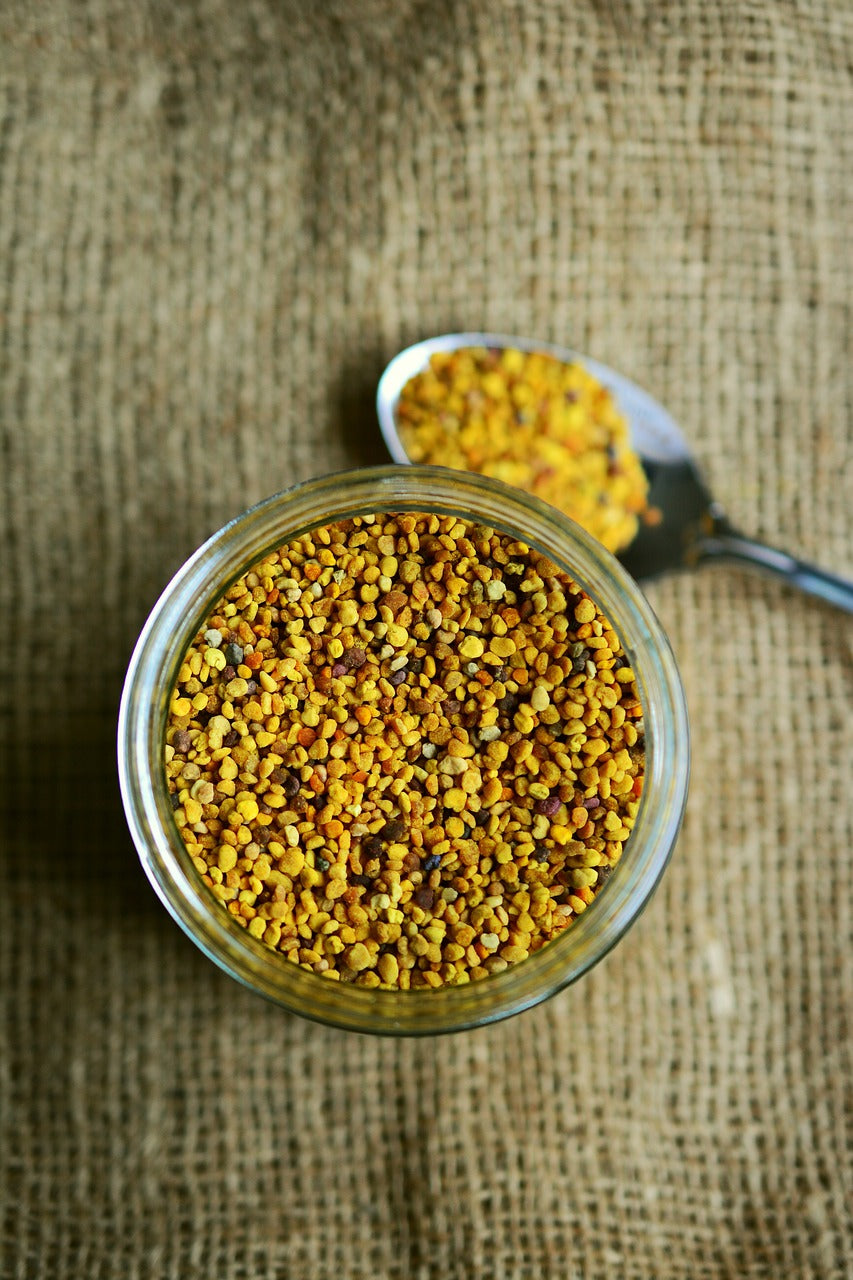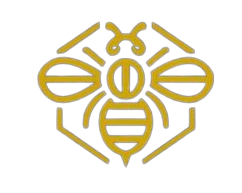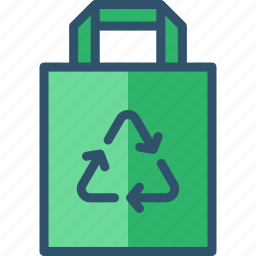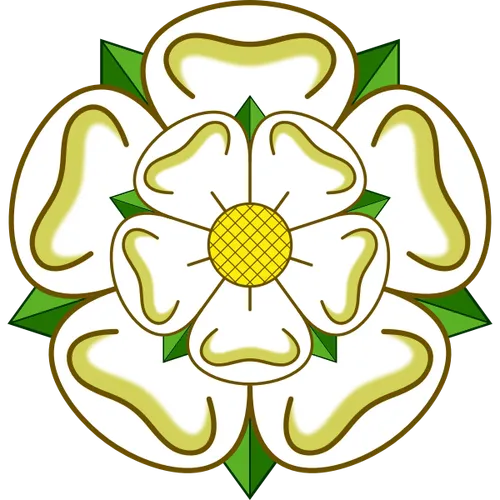
The Buzz About Pollen: Nature’s Tiny Powerhouse
Share
When we think of bees, the first thing that often comes to mind is honey. But there’s another vital ingredient that bees collect and spread—pollen. While pollen may seem like just a tiny grain, it plays an incredibly important role in both the natural world and our everyday lives. So let’s take a closer look at this fascinating substance and why it’s so crucial to our environment and health!
What is Pollen?
Pollen is a fine powder produced by flowers, trees, and grasses as part of their reproductive process. It contains the male gametes (sperm cells) of plants and is essential for fertilizing the female parts of flowers, leading to the production of seeds and fruit.
Bees and other pollinators, like butterflies and birds, play a critical role in transferring pollen from one flower to another as they go about their foraging. This process is known as pollination and is the backbone of much of our food supply. Without pollination, many of the fruits, vegetables, and nuts we rely on simply wouldn’t exist!
Why Pollen is Vital to the Environment
Supports Plant Growth and Biodiversity
Pollination, driven by pollen transfer, is essential for the growth of a wide variety of plants. From wildflowers to fruit trees, the process allows plants to reproduce, ensuring healthy ecosystems. Healthy ecosystems support biodiversity, which in turn strengthens the entire food chain. Simply put, bees and other pollinators help maintain balance in nature, making it possible for plants to grow and thrive.
Promotes Healthy Crops and Food Supply
Pollen plays a direct role in the production of many crops that we eat every day. From apples to almonds, berries, and tomatoes, countless crops rely on pollinators to carry pollen from one flower to another. Without pollen and the pollination process, our food supply would look drastically different—and much less abundant. So, the next time you bite into a juicy apple or enjoy a handful of almonds, remember that it’s thanks to pollen and the bees that helped make it happen!
Pollen and Its Health Benefits
While pollen is most commonly known for its role in plant reproduction, it also has a rich history in traditional medicine due to its powerful health benefits. Here are a few ways pollen can contribute to your well-being:
Rich in Nutrients
Pollen is a nutrient powerhouse. It contains essential vitamins, minerals, protein, lipids, and amino acids, making it an excellent supplement for a well-rounded diet. Some studies suggest that pollen may help to boost the immune system, enhance energy levels, and even improve digestive health. Its rich content of antioxidants also plays a role in reducing inflammation and fighting oxidative stress in the body.
Boosts Immunity and Vitality
Bees collect pollen from a variety of plants, which means that pollen contains a broad spectrum of nutrients. People who consume pollen as a dietary supplement often report feeling more energetic and experiencing better overall well-being. It’s said to help support the immune system, reduce allergy symptoms, and even fight fatigue.
A Natural Allergy Remedy
For those who suffer from seasonal allergies, bee pollen may offer relief. Since bee pollen contains small amounts of the same allergens found in the air, consuming it in moderation may help desensitize the body over time, leading to fewer symptoms during allergy season. However, if you have a known pollen allergy, consult with your doctor before trying bee pollen, as it can sometimes trigger reactions.
How Bees Help Pollinate
Bees, particularly honeybees, are some of the most effective pollinators on the planet. As they collect nectar from flowers, they also collect pollen on their bodies. The fine, sticky grains of pollen stick to the bee’s legs and body, and as they move from flower to flower, they inadvertently transfer the pollen, fertilizing the plants in the process. This is what makes bees such a crucial part of the pollination process.
Interestingly, bees don’t just collect pollen for pollination—they also collect it as a food source. Pollen provides essential nutrients for their colony and is stored in their hives to feed the young bees.
How You Can Support Pollinators
With bee populations declining due to factors like habitat loss, pesticides, and disease, it’s more important than ever to protect these incredible pollinators. Here are a few ways you can help:
-
Plant Pollinator-Friendly Plants: Create a garden that supports bees and other pollinators by planting a variety of flowers, herbs, and trees that provide nectar and pollen.
-
Avoid Pesticides: If you’re gardening, opt for natural pest control methods rather than harmful chemicals that can harm pollinators.
-
Support Local Beekeepers: By purchasing local honey or other bee-related products, you’re supporting the people who are helping maintain healthy bee populations.
Pollen: A Natural Treasure
Pollen may be small, but it’s mighty! From its role in plant reproduction to its many health benefits, pollen is a true treasure in nature’s toolkit. Whether you’re marvelling at the food you eat or looking for natural ways to boost your health, pollen is always there—working behind the scenes to make the world a better place.
If you’re interested in exploring the amazing benefits of pollen and its by products, check out our range of bee products, including raw honey, beeswax, and more.






